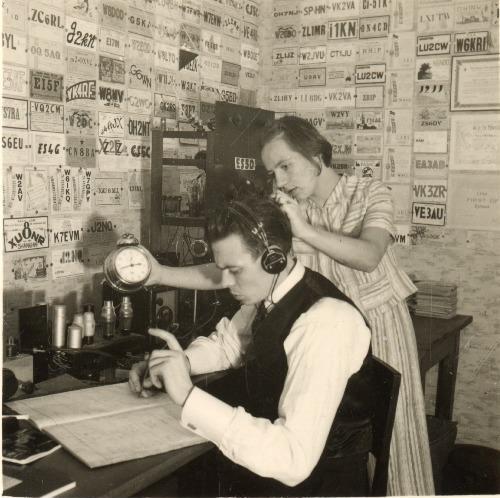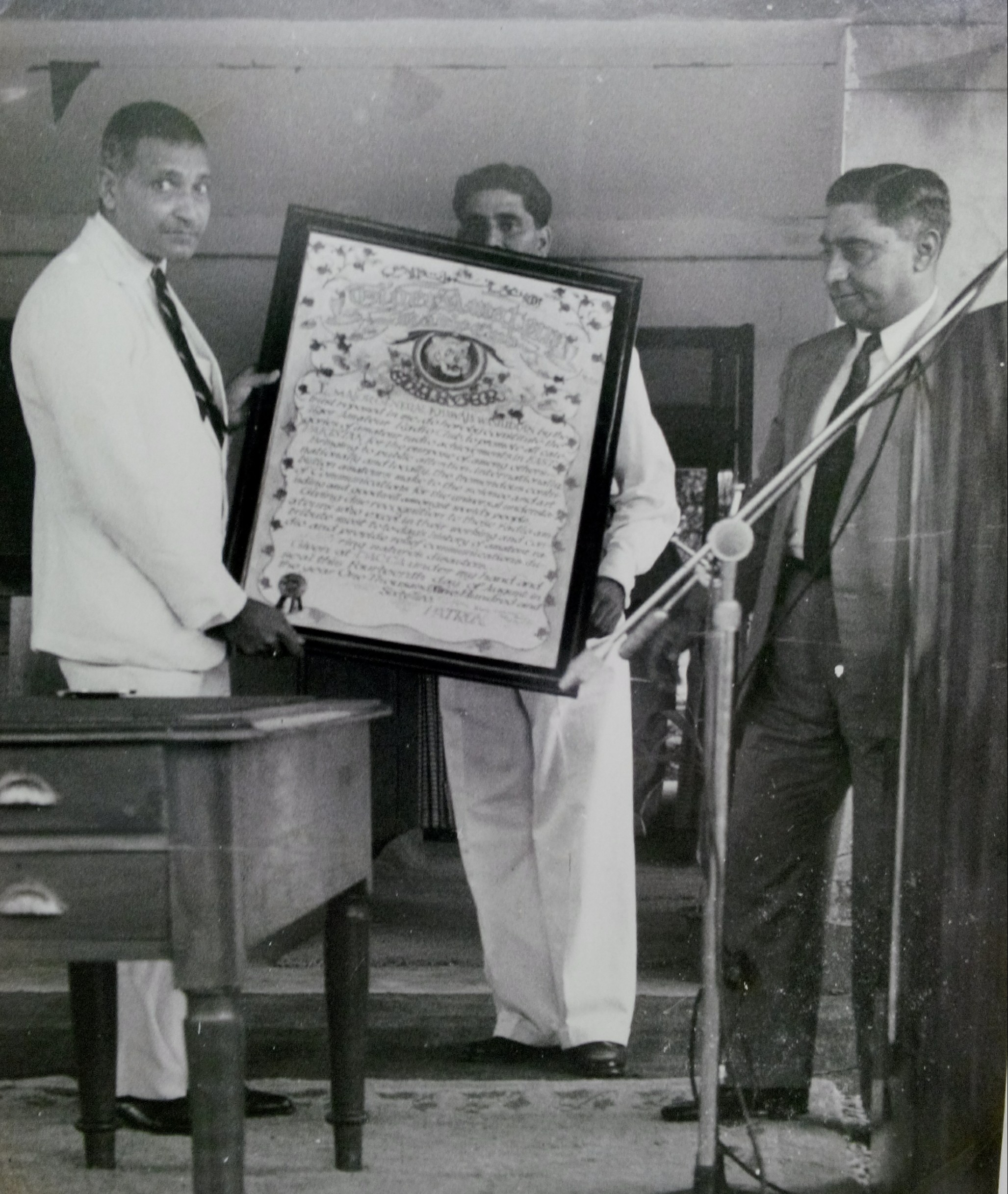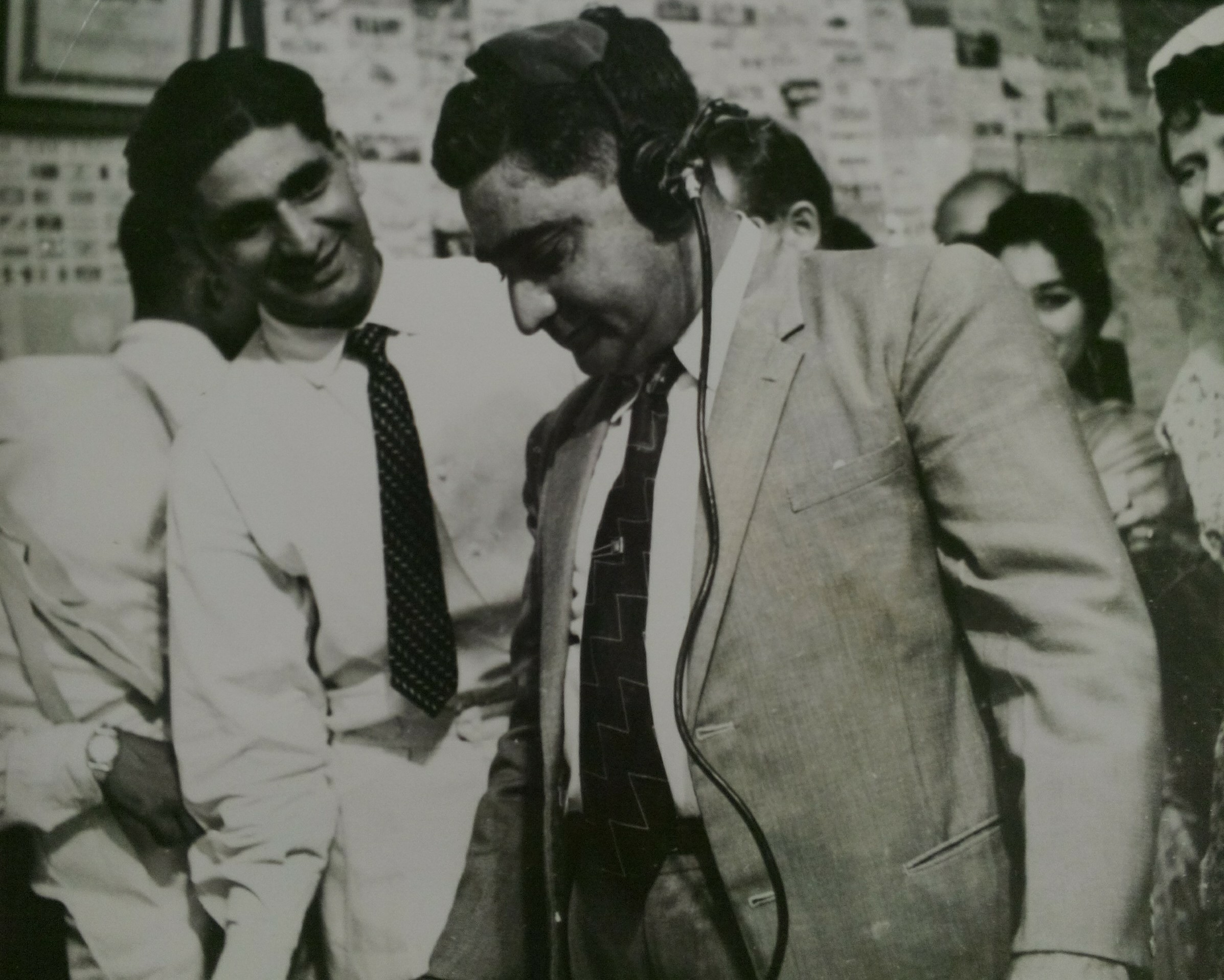Back in the early sixties when I was a school-kid – long before our Bengali brethren were alienated by military-rulers and feudal politicians, and when the relations between the then East and West Pakistanis were sweet and friendly – my father, a young Signals officer in the army, posted in Dhaka for a couple of years, was given an assignment that was in addition to his normal duties.
As we all know the beautiful land of Bangladesh is unfortunately prone to terrific cyclones and floods, particularly along the coast of Bay of Bengal. These cyclones prove disastrous for the poor people of those areas. Thanks to cellular telephony and a flat terrain, now-a-days Bangladesh is one of the best cellular-covered countries in the world. But during those days, telecommunications had not developed so much and the entire burden fell on the wired Telegraph network which connected the administrative headquarters, breaking down more often than not. In the absence of reliable communications, it was not possible to provide any kind of early disaster warnings to the people of those “unserved” areas. Neither was it possible to get relevant timely information about developing cyclones from those areas. Similarly providing post-disaster relief always requires a working communications system to facilitate rescue, medical and aid workers.
Amateur Radio (also called “Ham” Radio) had been developing fast since the beginning of last century, used by hobbyists to get a thrill out of talking to strangers in far off places. A typical amateur radio “station” would be a small room cramped with short-wave radio transceiver equipment, with the operator crouching in front of a microphone, wearing headsets, scanning the ITU-allocated “short-wave” frequency band for any faint human voice (or Morse-code signals), coming from any direction. There were no satellite links employed for amateur radio, but “short-wave” frequency bands made it possible to be heard over considerable distances, albeit not always very clearly because of the constant crackling sounds from the ionosphere.

Every Amateur radio network (or “Club”) had a name, and every radio station had a “Call Sign” (consisting of alphanumeric characters following a convention). Whenever two amateur radio operators sitting in different parts of the world made contact with each other and could hear well enough to understand each other’s postal addresses, they would exchange post-cards via the postal service. Amateur operators had individual postcards specially printed, which carried the name of the Club and their individual Call Sign. All received cards were displayed on the walls of the “radio station” by the recipients as trophies.
With the passage of time, amateur radio operators started discovering other innovative and useful applications of this technology. They discovered that amateur radio could also be used for a myriad of services, among those: saving lives. By then the size and power requirements had come down, so it became possible to deploy radio in the field rather quickly. Seeing these advantages the government decided to deploy an amateur radio network across East Pakistan, to be used mainly for communications to/from the areas prone to cataclysmic natural disasters. In normal times it would be used to promote understanding among the people.To develop such an amateur radio network, was the task that my father was given
I remember during the time the network was being established, and also later during its 24/7 operation, he had to travel several times (by train and steamer boats) to places like Chittagong, Cox’s Bazar, Khulna and Jessore. “The Tiger Amateur Radio Club” (it was named after the famous Bengal tiger), was inaugurated by General Khwaja Wasiuddin, who presented a “Charter” to the club, in August 1963.

Being the eldest child I (and my younger brother Javed Iftikhar) had the privilege of occasionally accompanying him to the newly setup Dhaka amateur radio station, where he had to frequently go in the evenings. He would always try to explain to us how things worked.
We left Dhaka soon after that but up to the 1965 war one kept hearing how helpful the Tiger Amateur Radio Club was in providing relief efforts. I have no idea what happened subsequently, but my father did receive a “Commendation Certificate” from the government, for his “meritorious services” in setting up the network. The Certificate hung, framed, at our home for a long time.

As a student of class-4 I can vividly recollect all these things (I even remember the call sign of Dhaka radio station, which was AP5CP) primarily because my father tried to ensure that we learned from his experiences. I remember that one day when I asked him about this ‘thing’ called radio frequency, he took a paper and a pencil and explained it all to me in terms so simple that I can never forget. In fact that was my first lesson in telecom engineering!
The first time two amateur radio enthusiasts talked to each other across the Atlantic, a watershed event in the history of Amateur Radio, had been in the year 1923 – the year my father was born! Exactly forty years later he helped establish an amateur radio network for communications to/from unserved areas. Little did I know that after another forty-four years I would become the founding CEO of USF Pakistan – which would start my own love-affair with providing telecommunications in the unserved areas!


Excellent … and … touching
Dear Pervaiz: I did not know of your dad’s involvement with Amateur Radio, I was licenced AP2HJ in 1976: and by this time AP5CP had moved to STC Kohat. My god the radio comm perhaps also comes in the genes, you thru your father and me thru my father who as also a signals officer (2nd PMA). May Allah bless the soul your dad with a place in Jannat. (Amen).
It was very interesting just like a story with different characters and roles and little history.
Parvez saheb
I’m truly impressed with the achievements. I have the pleasure to have worked with you and can say without hesitation that I found you a source of inspiration. Your demeanour was full of encouragement and support.
Apart from all this I would have taken you in the lead role if I was a film producer.
May God guide you through your life full of health and happiness.
Major Zuberi
Thank you very much Fawad Niazi and Haroon Khan.
Thanks Haroon Qureshi. Unfortunately I did not know that you were also a Ham enthusiast, otherwise I would have pestered you a bit. Do you still do it? And yes something or the other does pass on in one’s genes….
Zuberi Saheb you are just too kind that’s all. Regarding my appearing in your film (IF you were a producer), well I better answer you in person:)
Oh,1960s ! Where have you gone ?
Very nostalgic.Thanks for sharing
Wonderful story, Parvez! I’m a devoted student of the history of communication, in all forms, and this is a great example from your world and family! Your writing is excellent, too: you should do more!
David
Thank you very much David. Your comments are extremely encouraging. Thank you ver much indeed.
I distinctly remember that it was start of Summer Vacation when Daddy was posted at Dhakka, as usual he had lined some assignment for us to keep us busy. One fine morning he took us to an office (Later we came to know that it was HAM Radio Club office).
THE ASSIGNMENT
We, Parvez Iftikhar & myself were given a big heap of Cards and were instructed to sort them out and arrange them country wise, region wise and state wise. it took quiet a while since a number of them contained language we could not decipher. None the less the first task was done and was so reported.
The next task was to arrange them Alphabetically & numerically and all of them contained mixture of Alphanumeric serials. That when achieved we were given the last task and that was to make an entry in one big Register.
I cannot forget how colorful, how innovative, how informative and how beautiful the cards were.
THE LESSON
The lesson learnt was coming to know about countries of the world, their capitals, how many states there were, new names of cities and the list goes endless. This is where I came to know that there is a country by the name of Czechoslovakia.
No we at that time did not know the importance of HAM Radio but it was later
Thank you Javed for contributing your part. It is extremely nice and sweet of you. Thank you again.
Good to know about your father. The article is interesting and showing your attachment with your father.
Thanks Azeem. Yes I was pretty attached with him, not only because of his efforts to be a good father, and the fact that I was the eldest child, but also because he departed a bit too early – at the age of 49-and–half.
Very beautiful and touching Parvez. Having lived in Bangladesh for seven years and having seen some of the devastation due to cyclones I heard numerous stories of how many were saved due to the HAM Radio Operators.
It is heartening to see that you are continuing the good work
Thank you Shahid. I knew you would feel the way very few others would, because of your long association with that beautiful land….
Nostalgic, a true picture of handing over of a torch from one generation to next. To me its just an imagination of enlighting the corridors of communication. How l missed such true n deep love of a father and sons.. Well done Peji bhai how happy n satisfied would Daddy be to see his candle enlightening more n more world of communication..
Thanks Waqar. Even though, being the youngest, you did not have a lot of time with him, I am sure up there he must be feeling proud of you, as you accomplished that very few are able to! You still have a lot of time in front of you to achieve even more!
A very well written article . I am great admirer of you and have listened your talk shows as well regarding the launch of 3G network in Pakistan.
Sorry Ahmad, I just stumbled upon your comment. I am sorry that it happened after such a long time, and I missed acknowledging and thanking you earlier.
Thanks for your kind remarks.
A beautiful piece of history preserved for all of us. Ham operators can still do wonders specially in remote areas in case of natural calamities. Do you think it should b done here too? Because there’s a great possibility of existing telecom infrastructure going down in such instances. I have traveled a lot in AJK and Northern areas and I can see a lot of utility there. Thanks